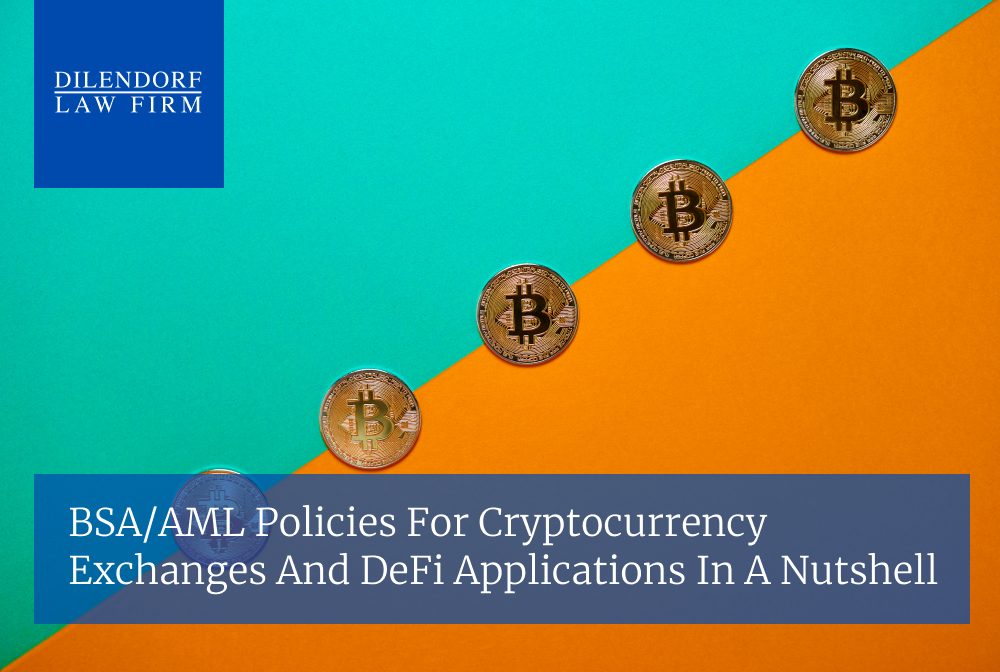Is Defi Legal in the US?
In 2022, our firm published an insightful article exploring the legality of DeFi under the current U.S. regulatory framework. You can read the full post here.
To summarize, our analysis indicates that most DeFi operations in the U.S. are likely to conflict with the rules, regulations, and guidance issued by the U.S. Department of Treasury, the Department of Justice, the Financial Crimes Enforcement Network, and the Office of Foreign Assets Control.
These conflicts primarily arise due to potential violations of the U.S. Bank Secrecy Act and Anti-Money Laundering regulations.
These are just a few of the federal agencies with jurisdiction over cryptocurrency transactions. The unchecked and stolen crypto due to vulnerabilities in DeFi smart contracts, inadequate cybersecurity protocols, crypto rug pulls and unethical founders not only undermine the ecosystem’s development but also pose significant national security risks.
By understanding and addressing these regulatory challenges, we can work together to create a more secure and sustainable future for the cryptocurrency industry.

Incentives for Cleaning Up the Industry
There are significant incentives for taking action.
Under Dodd-Frank, the Securities and Exchange Commission (SEC) and the Commodities Futures Trading Commission (CFTC) can offer monetary awards of 10% to 30% of the money collected to individuals who provide high-quality information leading to enforcement actions with sanctions over $1 million.
Additionally, the Anti-Money Laundering Act of 2020 has empowered the Department of Treasury’s Financial Crimes Enforcement Network (FinCEN) to establish a new whistleblower program.
This program removes the previous $150,000 cap on awards and authorizes the Treasury to grant up to 30% of the money collected from enforcement actions to whistleblowers.
These substantial financial rewards not only incentivize individuals to expose wrongdoing but also play a crucial role in cleaning up the cryptocurrency industry, ensuring its long-term health and integrity.
Our Firm’s Strong Relationships with Federal Crypto Regulators
At Dilendorf Law Firm, we pride ourselves on our robust relationships with the federal agencies regulating the cryptocurrency industry.
Our attorneys are deeply familiar with the federal whistleblower programs. Leveraging this experience, we collaborate closely with our clients, ensuring they feel safe and protected throughout the entire process.
By collaborating with regulatory bodies and utilizing our in-depth knowledge, we effectively navigate the complexities of the crypto field and advocate for our clients’ best interests.
Key Federal Agencies Overseeing Illicit Crypto Activities in the U.S.
Depending on the misconduct you wish to report, we advocate for your rights and those of consumers with the appropriate enforcement agency.
Our firm is equipped to provide the best possible representation for whistleblowers in the crypto, blockchain, and fintech industries, including but not limited to:
- Decentralized Exchanges (DEXs)
- Centralized Cryptocurrency Exchanges
- Digital Asset Exchanges
- Decentralized Finance (DeFi) Platforms
- Online Trading Platforms
- Decentralized Applications (dApps)
- Liquidity Pool Providers
- Token and NFT Issuers
- Wallet Providers
At Dilendorf Law Firm, we ensure all claims are filed correctly and with the appropriate parties, while safeguarding our clients’ privacy. Our experienced team has an excellent track record of working with various government agencies, ensuring our clients are protected from employer retaliation.
Track Record of our Excellent Strategic Co-Counsels – Adam Pollock and Steve Cohen
Research Fraud
-
A major pharmaceutical company paid $3 billion to resolve charges that it illegally promoted nine different prescription drugs, paid kickbacks to doctors to prescribe the medications, and falsified scientific research and articles.
Healthcare Fraud
-
A healthcare provider paid $195 million to settle allegations that the company encouraged physicians to prescribe highly addictive opioid painkillers for unapproved purposes. (The painkillers were approved for cancer patients only, but the company was encouraging prescriptions for non-cancer patients.)
-
A company paid $500 million to resolve various claims including that it promoted the use of its drug product to physicians who “were writing prescriptions … that were unsafe, ineffective, and medically unnecessary.”
-
A healthcare operator paid $48 million to resolve allegations that some patient admissions to its facilities were not medically necessary and that some of its facilities provided inaccurate information to Medicare to maintain their status as “inpatient rehabilitation facilities” – a designation that enabled the operator to earn a higher rate of reimbursement from Medicare.
-
A medical device manufacturer paid $33.2 million to resolve allegations that it sold a materially unreliable testing device that was intended to help doctors and nurses diagnose drug overdoses, assess acute coronary syndrome, and identify other serious conditions
-
A major hospital system paid $731 million to resolve claims that it ordered medical tests that were not necessary, up-coded various charges, and misrepresented its advertising expenses as “community education” in order to get the government to pay for non-reimbursable expenses.
The most common types of healthcare fraud include:
Recent SEC Public Whistleblower Awards:
Recent CFTC Public Whistleblower Awards:
Resources:











































